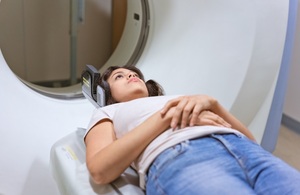A national targeted lung cancer screening programme designed to catch cancer sooner or prevent it altogether has been announced by the Prime Minister and Secretary of State for Health and Social Care.
People aged 55-74 with a GP record including a history of smoking will be assessed and invited for screenings and smoking cessation services
Each year the programme – which will cost £270 million annually once fully implemented – is expected to detect as many as 9,000 people with cancer, deliver almost one million scans and provide treatment earlier.
The rollout follows a successful opening phase where approximately 70% of the screening took place in mobile units parked in convenient places – such as supermarket car parks – to ensure easy access and focused on more deprived areas where people are four times more likely to smoke.
The programme, backed by a recommendation from the UK National Screening Committee – will use patient’s GP records for those aged 55 to 74 to identify current or former smokers. Patients will have their risk of cancer assessed based on their smoking history and other factors and those considered high risk will be invited for specialist scans every two years.
Smoking causes 72% of lung cancers, around 35,000 people die and 48,000 people are diagnosed with lung cancer each year.
It has one of the lowest survival rates of all cancers which is largely attributed to lung cancer being diagnosed at a late stage when treatment is much less likely to be effective. Treating cancer early improves people’s chance of survival with 60% of people currently surviving stage one cancer for five years or more and 4% at stage four.
It is estimated the rollout will mean 325,000 people will be newly eligible for a first scan each year with 992,000 scans expected per year in total. Additional radiographers, due to be appointed as part of the long term workforce plan, will help to support the programme.
Anyone assessed as being at high risk of lung cancer will be referred to have a low dose Computed Tomography (LDCT) scan and subsequent diagnosis and treatment if needed. Those whose scans are negative will be reinvited for further scans every 24 months, until they pass the upper age limit.
Some people who test negative but are found to have nodules will be reinvited for more frequent scans. These nodules are often the first signs of cancer developing so by monitoring more frequently if they turn cancerous they can be delt with quickly and at the early stages.







